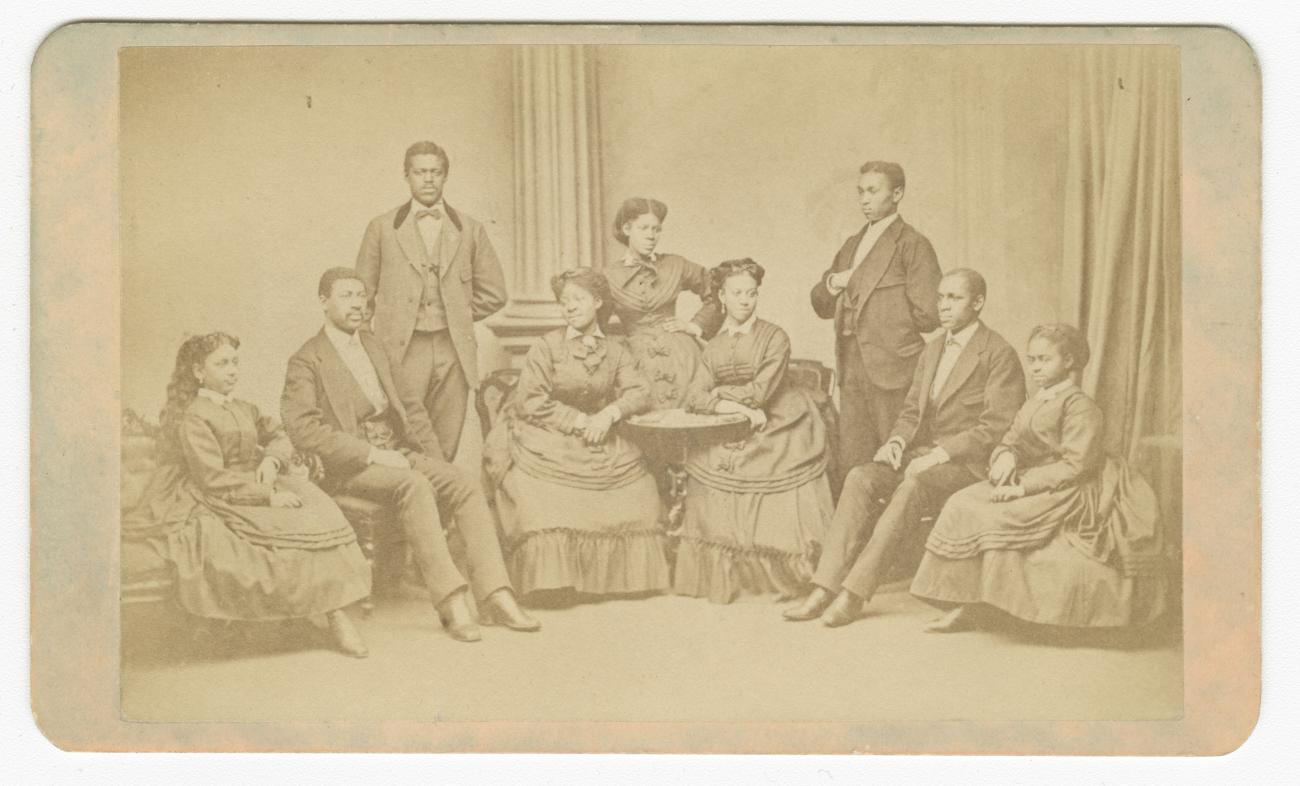Juneteenth 2024

Photo: A carte-de-viste depicting the fisk university jubilee singers with all nine members present, 1872. Collection Of The Smithsonian National Museum Of African American History And Culture
Happy Juneteenth!
Juneteenth marks a pivotal moment in American history – the day in 1865 when the last enslaved African Americans in Texas finally received news of their emancipation over two years after the Emancipation Proclamation was issued. For generations, Juneteenth has been observed by Black communities nationwide through gatherings with music, dance, spoken word performance, and more.
As Juneteenth gains wider recognition as a federal holiday commemorating the end of slavery, it presents an opportunity to deepen our understanding of this monumental event and the continued struggle for racial justice. The following list highlights films and books that illuminate Juneteenth’s origins, traditions, and profound impact on our nation's journey toward equity.
- PBS | Juneteenth: Faith & Freedom
- This documentary follows a Black man who grapples with and interrogates the troubled history of American slavery and Christianity’s role in its continuation. He travels throughout Texas, interviewing various descendants of those emancipated in the region in 1865, and discovers how Juneteenth celebrations display the resilience of formerly enslaved people fighting for freedom despite injustice.
- Library of Congress | Born in Slavery: Slave Narratives from the Federal Writers' Project, 1936-1938
- This online collection contains more than 2,300 first-person accounts of slavery and 500 black-and-white photographs of formerly enslaved people. These narratives were collected in the 1930s, and a set of edited transcripts was assembled for the 17-volume Slave Narratives: A Folk History of Slavery in the United States from Interview with Former Slaves in 1941.
- UNC Wilson Special Collections Library | George Moses Horton Materials
- Explore the groundbreaking work of George Moses Horton, the first African American man to publish a book of poetry in the South while still enslaved. His volumes of poetry, including the Naked Genius (available online through Bobst) made him one of the first to publicly protest the injustices of slavery through verse.
The Office of Global Inclusion, Diversity, and Strategic Innovation has also curated a resource guide, which includes events happening across NYU and around New York City.
And visit our communications archive to read last year’s Juneteenth message and engage with more resources!